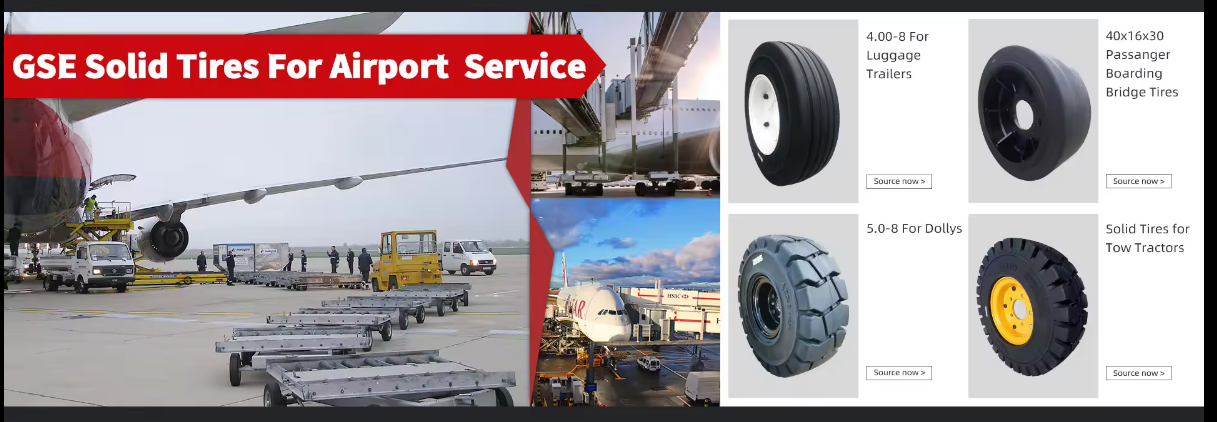For any business that relies on hauling goods, whether for logistics, construction, or agriculture, trailer tires are a mission-critical component. They are the only part of your trailer that touches the road, directly impacting safety, fuel efficiency, and overall operational reliability. Ignoring their importance can lead to costly downtime, damaged cargo, and even accidents. A proactive approach to selecting, maintaining, and understanding your trailer tires is a non-negotiable part of a smart business strategy.
Key Factors When Selecting Trailer Tires
Choosing the right trailer tires isn’t just about finding the cheapest option. It’s about selecting a product that matches your specific needs and provides long-term value.
1. Tire Type: ST vs. LT
- Special Trailer (ST) Tires: Specifically designed for trailers, these tires have a stronger sidewall to handle the heavy vertical loads of a trailer. They are built for stability and resist swaying, making them ideal for towing applications.
- Light Truck (LT) Tires: While they can sometimes be used on trailers, LT tires are designed for a different purpose—hauling and steering on a truck. They are not built to withstand the unique vertical loads and are more susceptible to sidewall failure when used on a trailer. For safety and longevity, ST tires are the recommended choice.
2. Load Range and Ply Rating
- Understand the Load Range: This is arguably the most important factor. The load range indicates the maximum weight a tire can safely carry. It’s identified by a letter (e.g., C, D, E) and corresponds to a specific ply rating. Always choose a load range that is equal to or greater than the maximum weight you plan to haul.
- Ply Rating Explained: The ply rating is a historical term that refers to the number of rubber-coated fabric layers in the tire’s construction. A higher ply rating means a stronger, more durable tire capable of carrying heavier loads.
3. Proper Sizing and Speed Rating
- Match the Trailer Specifications: Always use the size recommended by your trailer manufacturer. Using an incorrect size can compromise safety and lead to premature tire wear.
- Check the Speed Rating: The speed rating indicates the maximum safe speed for the tire under a specific load. Trailer tires generally have lower speed ratings than passenger car tires. Adhering to this rating is vital for preventing blowouts and ensuring safety on the highway.
Best Practices for Trailer Tire Maintenance
Proper maintenance is the best way to extend the life of your trailer tires and prevent unexpected failures on the road.
- Maintain Proper Inflation: Under-inflated tires are a leading cause of trailer tire failure. They build up excessive heat, which can lead to blowouts. Always check tire pressure before each trip, preferably when the tires are cold.
- Regular Inspections: Visually inspect your tires for signs of wear, cuts, or bulges. Also, check for uneven wear patterns, which can indicate issues with the trailer’s alignment or suspension.
- Load Distribution: Ensure that the load is evenly distributed across the trailer. An unbalanced load puts excessive stress on some tires, leading to uneven wear and potential failure.
Conclusion: A Small Investment for Big Returns
Investing time and resources in selecting and maintaining the right trailer tires is a small cost compared to the potential financial losses from a roadside breakdown. The right tires improve safety, reduce fuel consumption, and protect your valuable cargo. By understanding the key factors and implementing a solid maintenance routine, you can ensure your fleet remains reliable and your business stays on the move.
FAQ
1. Can I use car tires on my trailer? No, you should never use passenger car tires on a trailer. Passenger tires are designed for a different type of load and road stress. They lack the stiff sidewalls needed to handle the vertical loads of a trailer, which can lead to dangerous swaying and tire failure.
2. How often should I replace my trailer tires? Even if they have tread left, trailer tires should be replaced every 3 to 5 years. Unlike car tires, they often sit for long periods, leading to dry rot and degradation of the rubber, which can cause them to fail without warning.
3. What does “ST” stand for on a trailer tire? “ST” stands for “Special Trailer.” This designation indicates that the tire is specifically designed and built to handle the unique demands and loads of a trailer.
4. How does tire pressure affect my trailer’s performance? Proper tire pressure is crucial. Under-inflation generates excessive heat and can lead to a blowout. Over-inflation can cause a rough ride and make the tire more susceptible to damage from road debris. Always follow the tire manufacturer’s recommended inflation pressure.
Post time: 13-09-2025

